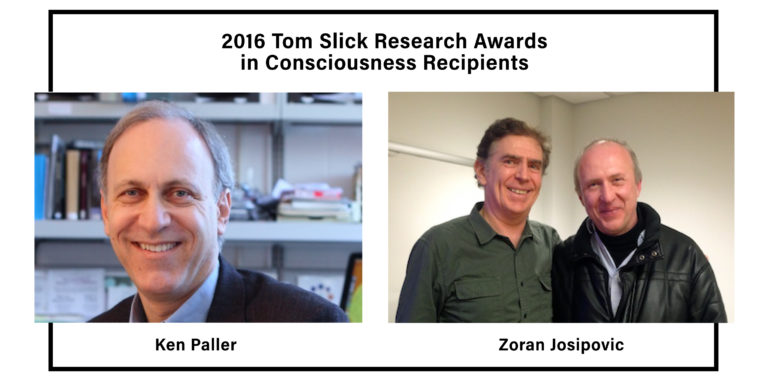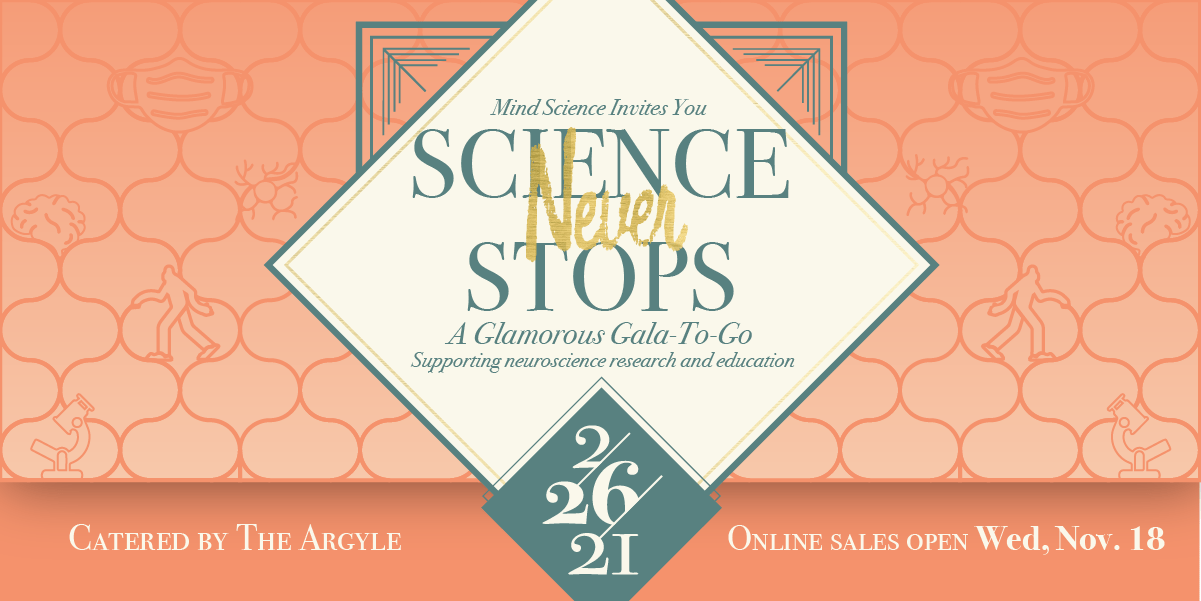2016 Tom Slick Research Awards in Consciousness

The Mind Science Foundation recently announced the results of its most recent round of funding. The Tom Slick Research Awards in Consciousness, now in their 12th year, celebrates MSF’s longtime commitment to funding innovative research focused on the mind, brain and human consciousness. Funds were awarded this year to researchers from Northwestern University Center for Law and NYU Comprehensive Epilepsy Center, examining the questions: Do we process memories better when we are asleep? and How do people with epilepsy process and control emotions?
Improving conscious memory abilities through unconscious memory rehearsal during sleep
Ken A. Paller, Ph.D.
Northwestern University
Do we process memories better when we are asleep? Sleeping and dreaming have long mystified humanity and been a focal point for philosophical and artistic exploration. An intriguing speculation is that we use our time sleeping to organize and regulate memory storage — unlike a computer, which does nothing at all when asleep. Extending this idea, we speculate that the conscious experiences one has when awake are partly a function of what the brain does in sleep. But strategies for understanding sleep are quite limited; reports made upon awakening disclose very little of the complexity of sleep, which includes a series of stages defined by the electrical activity of the brain (Stage 1, 2, etc.). Even with these standard electrophysiological methods, we are still very much in the dark about what happens during sleep. This project will contribute to ushering in a new era in understanding sleep and consciousness. We will systematically alter the functioning of the brain during sleep, with consequences for a person’s conscious experiences after awakening. Unconscious processing can have a striking influence on conscious thoughts. Results from this study will broaden research on the mechanisms whereby memory change during sleep impacts the conscious memory experiences we have when awake.
Effects of love and compassion meditation on affective and cognitive processing in epilepsy – an iEEG study
Zoran Josipovic, Ph.D.
Lucia Melloni, Ph.D
NYU Comprehensive Epilepsy Center
How do people with epilepsy process and control emotions? We are conducting a scientific study to characterize the neural changes that occur as a result of compassion meditation in patients with intractable epilepsy. Compassion meditation has been found to enhance positive affect, reduce psychological and physical distress, and enhance overall life-satisfaction, thus it may present a potentially beneficial complementary treatment for enhancing the psychological well-being of those suffering with epilepsy. Specifically, we are interested in exploring the changes in the amygdala network induced through this meditation. The aim of our research is to provide new insights into processing and control of emotions in this patient population. This research may also present an opportunity to discover new information about the mechanism of epileptogenic networks, for example, whether an epileptogenic network is affected by the affective-cognitive strategies involved in compassion meditation. Finally, this research will allow for a deeper understanding of the neural processes underlying compassion meditation, and of the extent to which these processes may share similarities and differences with the neural patterns underlying postictal religiosity.
Effects of epilepsy on consciousness are profound and multi-dimensional, affecting levels of arousal and contents of consciousness, as well as such core dimensions as selfidentity. Contemplative traditions point to capacity for love, compassion and empathy as one of the central factors determining the quality of human experience. Some see it as being, together with awareness and intuition-wisdom, one of the fundamental dimensions of consciousness. Chronic intractable epilepsy is a disabling disorder that carries significant public health burden. This research aims to further our understanding of epilepsy, and of the potentially new ways in which we can optimize the quality of life for those suffering with this disease.



